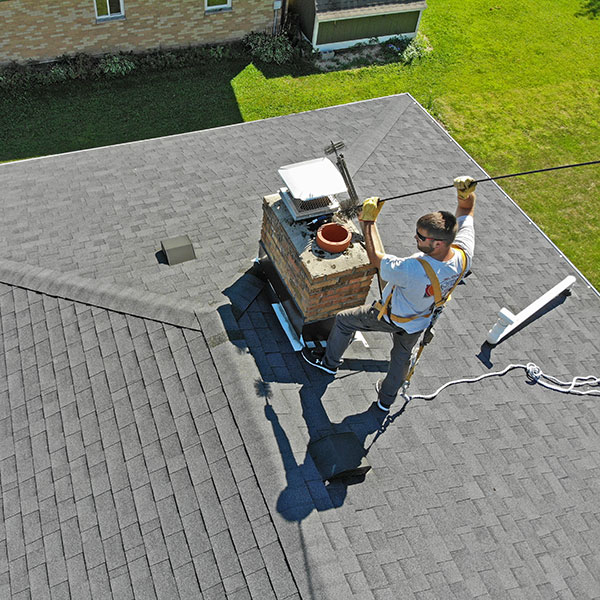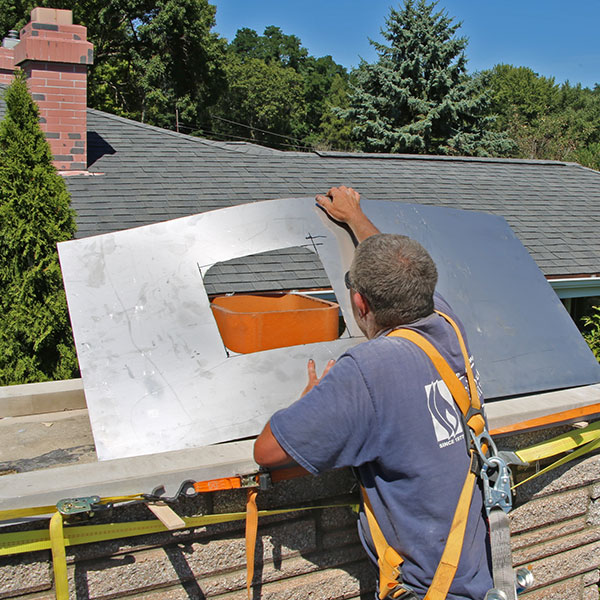Summer Humidity and Your Chimney
Summertime weather can be unpredictable. Will it be cool in the morning, yet hot in the evening? Will the temperatures be relatively low, but the humidity high? Let’s focus on that last part: humidity is a measurement of the amount of moisture in the air. When it rises, it can create a host of problems including affecting various parts of your home. So what is the connection between humidity and your chimney? Here are a few things to keep in mind.
 High humidity can lead to a smelly chimney
High humidity can lead to a smelly chimney
As we mentioned, when the humidity is high, this means there is a higher level of moisture in the air. When this damp air enters your chimney, it mixes with something else that may already be present in your flue: creosote.
Creosote is a black, sticky, tar-like substance that is a by-product of burning unseasoned wood. The more creosote that is present, and the higher the humidity is, the stronger the smell will be. Creosote should be removed regularly, and this is one reason we recommend all Dubuque Fireplace & Patio customers schedule a sweep and inspection early in the summer.
Drafting may be part of the problem
The word drafting has several definitions. In our context, it’s what happens when air is pulled from one area to another. In this case, it means that something else in your home — perhaps another appliance — is pulling air from your chimney into your living areas. When the humidity is high and your flue is full of creosote, it’s a recipe for a smelly situation.
In many cases, it’s a problem with ventilation
Along those lines, it also may be the case that your chimney or home has another type of ventilation problem. Let’s assume you have a debris blockage in your chimney. Those smells need to go somewhere, and most often, they’ll make their way into your home. Fixing the root cause of your ventilation problem can help rectify this.
A new cap, damper, and other repairs can help
But why would there be debris in your chimney? Most likely, this means you have a broken or missing chimney cap or chase cover. There may be birds or other rodents living in your flue and preventing proper airflow.
You also may have a broken damper. This chimney component helps to regulate the flow of air in your fireplace. If it’s jammed in the open position, you literally cannot block the smells from entering your home.
 There could also be other structural issues such as cracks or spalling brick. These help to contribute to moisture levels within your chimney. Once it mixes with your creosote buildup, it leads to major odor issues.
There could also be other structural issues such as cracks or spalling brick. These help to contribute to moisture levels within your chimney. Once it mixes with your creosote buildup, it leads to major odor issues.
An annual sweep and inspection is your first line of defense
This brings us back to an earlier comment: your best line of defense against humidity and creosote is an annual sweep and inspection. When you schedule this type of service, our technicians will remove all creosote buildup while also identifying any needed repairs.
Would you like to get in touch with our team to book your appointment? Then call
Dubuque Fireplace & Patio at 563-582-5156 or send our team a message.


 (563) 582-5156
(563) 582-5156


